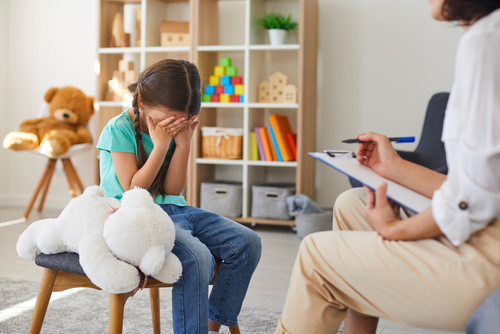Posts
Adverse Childhood Experiences: How to Make Them Work for Good
Essence Vance is one of the outstanding presenters at the 25th International Families and Fathers Conference. The author emphasizes the importance of effective communication, self-awareness, prevention, and implementation of changes in the household to provide a healthy, safe, and nurturing environment for children and the impact of parenting on a child's cognitive, emotional, and mental development.
Adverse Childhood Experiences: How to Make Them Work for Good
Information for Parents and Caregivers to reframe their thinking about the socialization of their children.
Essence Vance
January 2, 2024
2024 FFCA CONFERENCE REGISTRATION IS OPEN
April 22-25, 2024
25th International Families and Fathers Conference
Hilton Los Airport Hotel
5711 West Century Boulevard
Los Angeles, California 90045
How many times have our parents told us what to do sternly or spanked us when we were children, not knowing how the impact of their words or actions made us feel? Our young children go through a lot in their environment outside the home and seek solace from their parents. There is nothing wrong with disciplining our children, but when discipline becomes the household theme, the house is no longer a home; it is a cold, emotionless facility that provides food and shelter without love. I am saying that the style of discipline we use as parents can ultimately affect our child’s development positively or negatively.
For instance, an article by C. Rodriguez (2007), states that “, authoritarian discipline is a catalyst in a child’s disruptive behavior.” The cognitive functioning of our children is constantly being altered by the input of information in their environment. We are the first teachers of our children. Parents teach their children how to love and be loved. If the definition of love in your home is yelling, cursing, name-calling, devaluing one another, or hitting, then that is your child’s definition of love. Our children look at us as a template to understand how they should treat others and how they should feel about themselves.
CHILDREN ARE AFFECTED BY PARENTING

Depressive and substance use disorders are the result of a child who has been conditioned in an unhealthy home environment due to verbal, mental, or physical abuse. The repeated observation and involvement in this behavior becomes an imprint in the cognitive development of a child. According to a study done at the University of Utah, one in five children is diagnosed with a mental health disorder, and three million are in treatment for mental health-related illnesses in America (Rodriguez,2007).
If a parent is acting out of anger or doesn't know how to use proper conflict resolution, they can potentially physically abuse their child. The misunderstanding of the parent’s knowledge of discipline can escalate and enrage them because they don't have the tools to deescalate what they are feeling, so the parent lets their emotions discipline the child instead of them, and that can lead to physical abuse. Mishandled emotions are volatile, and it's like a ticking time bomb waiting to explode because the person doesn't know how to communicate what they are feeling with words, so they use their fists. This line can easily be crossed by parents going from yelling to hitting if they do not learn the tools to remove themselves from the heated moment to calm down and then reapproach the situation with words effectively. We as parents must understand that our parents didn’t have the tools to parent effectively, so we are left with scars and traumatic memories of our childhood. Is this what you want for your child?
In conclusion, most of us did not learn to parent effectively either. I will tell you this: the first step in effective parenting is communication, the second step is self-awareness, the third step is prevention, and the fourth and final step is implementation. Once we communicate what we expect from our children to our children, no matter how young they are, they gain understanding and utilize your calm, kind words as an enforcer without damage. When we know our behaviours, we will hold ourselves accountable for our actions and assess ourselves before interacting with our children to remain in control of our emotions. We prevent our children from becoming a catalyst in our emotional chaos and prevent their potential emotional and substance use disorders from developing. Lastly, we as parents must implement changes in our households to provide a healthy, safe, and nurturing environment for our children mentally, physically, and emotionally.
References
C. M. Rodriguez (&) A. M. Eden Educational Psychology, University of Utah, Child Psychiatry Hum Dev DOI 10.1007/s10578-007-0077-2 “Disciplinary Style and Child Abuse Potential: Association with Indicators of Positive Functioning in Children with Behavior Problems,” Received: 18 March 2007 / Accepted: 16 July 2007 Springer Science + Business Media, LLC 20071705 E Campus Center Dr. Rm 327, Counseling & Counseling Psychology, Salt Lake City, UT 84112-9255, USA e-mail:

